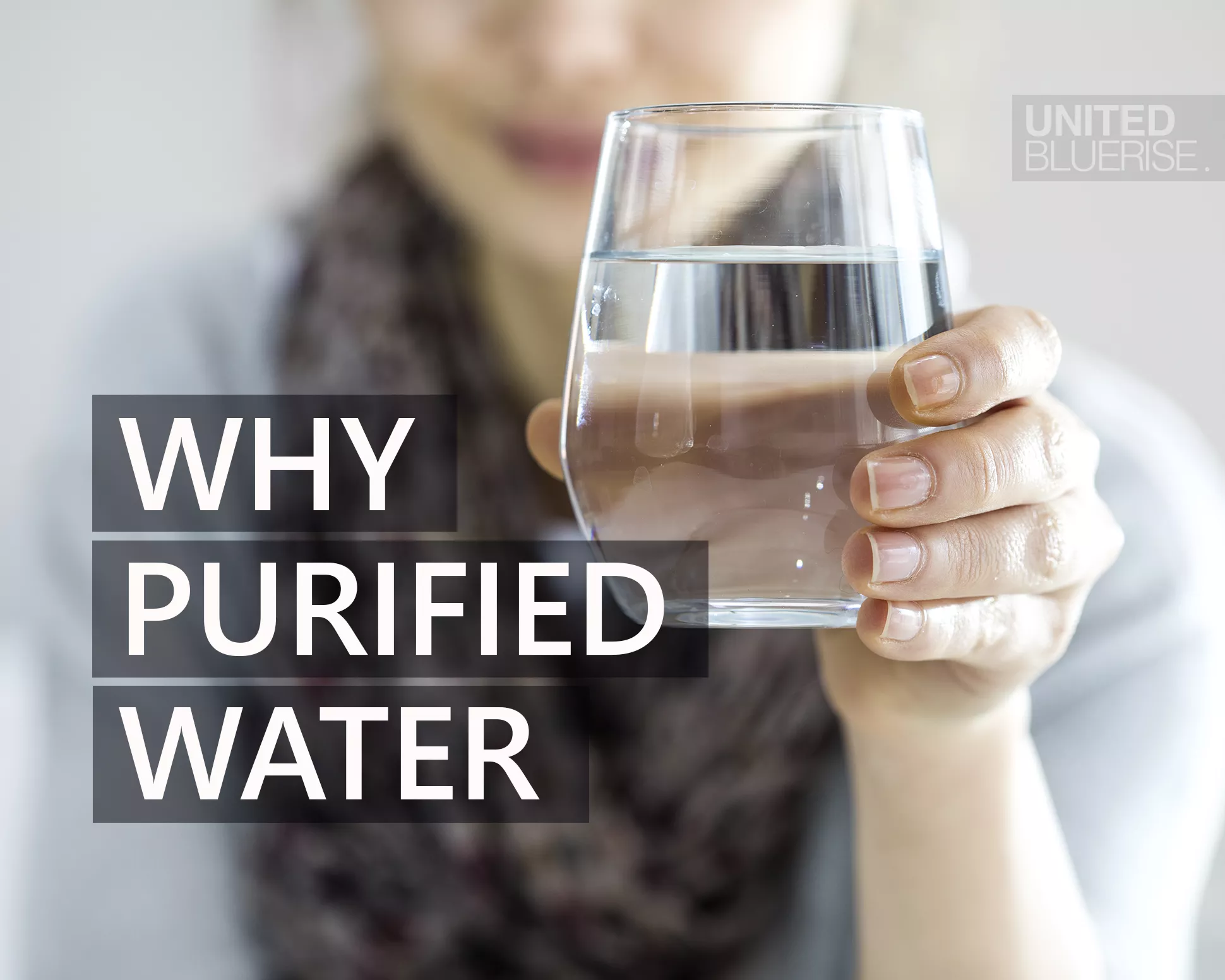Why We Need Purified Water For Our Daily Use

Purified Water is basically the water which has been thoroughly purified by processing to remove contaminants and pollutants. The purification process often includes the use of physical or other techniques to eliminate any chemicals that may be detrimental to the health of humans or have an adverse influence on the flavor, color, or aroma of the water.
Some common methods of purifying water include:
- Reverse Osmosis: The process that removes dissolved particles, including substances, from water using a semi-permeable membrane.
- Distillation: The process of boiling water to produce steam, which then condenses back into the state of liquid.
- Carbon filtration: Involves running water over an array of activated carbon, that accumulates minerals and other impurities.
- Ultraviolet (UV) light: The process of disinfecting water by eliminating viruses, bacteria, and other microbes using ultraviolet light.
Benefits of Purified Water
Drinking cleaned water has various advantages, including:
- Reduced contaminant exposure: Purified drinking water is free of potentially dangerous contaminants such as viruses, bacteria, metals, and chemicals that may be found in water from the faucet or other untreated sources.
- Improved flavor and odor: Water that has been purified has a fresh and clean taste and odor since it is free of chlorine as well as other chemicals that are commonly found in water from the faucet.
- Improved hydration: Consuming purified water can aid enhance hydration because it is devoid of contaminants that can interfere with the body’s absorption of water.
- Increased Immune System: Purified water can assist to prevent sickness and boost general health by limiting exposure to dangerous chemicals.
- Environmental advantages: Drinking filtered water as opposed to bottled water may reduce the amount of plastic waste and the environmental impact associated with bottled water production and transportation.
Applications
Purified water can be used for many different things, including drinking, cooking, and boiling coffee or tea. It is also utilized in high-purity water-requiring industries such as medications, electronics, and research in laboratories.
Water filters can remove contaminants and impurities, while, making your water taste better. Additionally, it can be a more eco-friendly way to enjoy clean water because it helps you cut down on single-use plastic bottles.
The Cost of Water Purifier
The cost of purified water varies based on the method of the purification process and the feature options of machine. Yet, by rough estimations it is clear that the bottled water as well as water delivery companies are more expensive than a home water filtering system in longer run.
Finally, purchasing a water filter can be affordable and spare you money in the long term. A water purifier may provide you with pure water to consume for years to come by removing the need for plastic bottles, lowering energy expenses, preventing expensive health issues, and ensuring a long-term investment. It is critical to select and maintain the appropriate water filter for your individual needs.
How UNITED BLUERISE Can Help
We, at UNITED BLUERISE, aim to promote rewarding sustainable solutions where the health benefits of a “pure-living” truly meet in parallel with environment challenges of a “plastic-free” world.
The goal for all of us surely to stand up for an ideal and unite towards a better world by sharing facts, ideas and advice on how to live a more responsible life. Our consuming culture is polluting our planet. We need prompt lifestyle changes when it comes to single-use plastic. Our goal is ultimately to reduce plastic waste. Plastic is not only polluting our planet and impacting communities around us, but it’s also making its way into our bodies through the air we breathe, food we eat, and water we drink.
Article: QL-7110